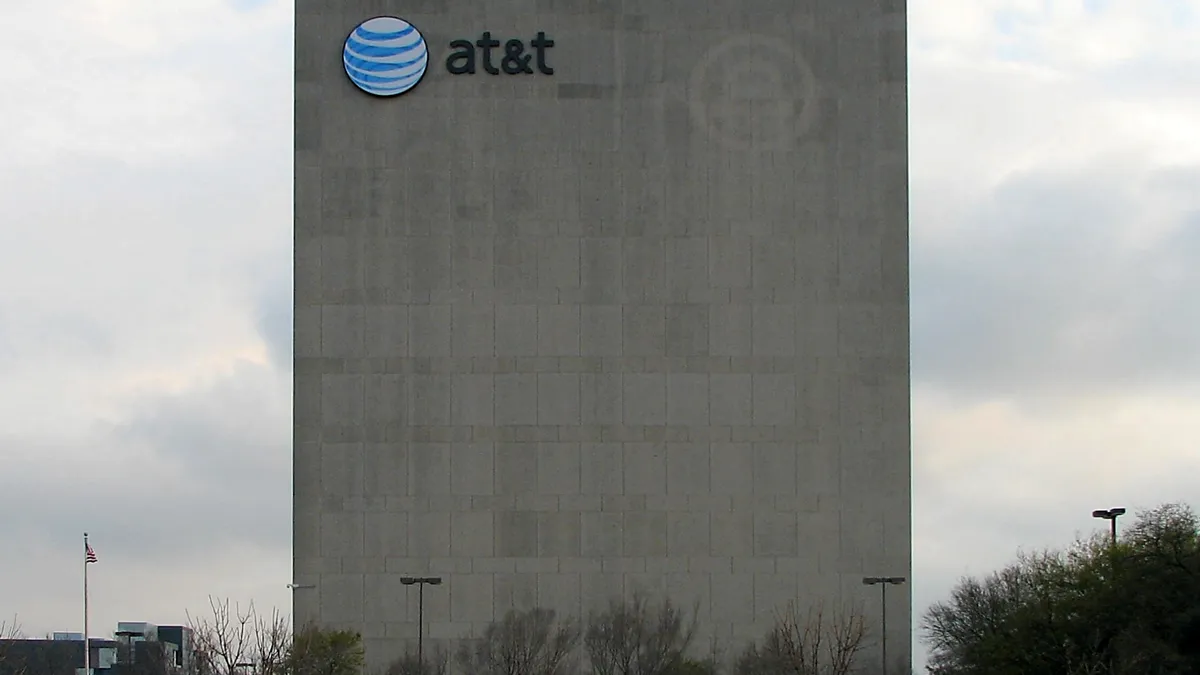UPDATE: June 25, 2018: AT&T confirmed on Monday that it agreed to buy ad tech company AppNexus. Terms of the deal weren't disclosed, though people familiar with the matter told The Wall Street Journal last week that AT&T was expected to pay about $1.6 billion for the acquisition that could help the telecom giant rival the "duopoly" of Google and Facebook for ad dollars.
Brief:
- AT&T is working on a deal to buy advertising technology company AppNexus for about $1.6 billion, people familiar with the matter told The Wall Street Journal. The acquisition would give the telecom giant, which last week completed a federally contested $85.4 billion takeover of Time Warner, a digital ad sales platform to challenge Facebook and Google.
- AppNexus runs one of the biggest online ad exchanges, automated marketplaces that let advertisers buy space among thousands of websites to target key audience groups. Unlike some ad tech firms that help publishers manage ad space on websites, or others that help media buyers purchase ads, AppNexus handles both.
- Brian Lesser, the former CEO of GroupM North America who joined AT&T last year, is leading the telecom giant's efforts to build an ad business, per Cheddar, which first reported on the AT&T-AppNexus talks.
Insight:
AT&T's plan to acquire AppNexus is part of the telecom provider's broader strategy to build a media business that creates both content and sells ad space. AT&T's wireless division reaches 159.4 million people in the U.S. and Mexico, a mass audience of people checking their phones dozens of times a day. AT&T not only has personal data about its customers, including their payment methods, but also can gather key information about their browsing history and app usage.
In general, mobile advertising is a high-growth business that will increase to about 31% of global expenditure by 2020 from 19% last year, and is estimated to overtake broadcast TV by 2021, according to a forecast by Zenith. The acquisition of AppNexus would move AT&T deeper into this digital ad realm. The company is still much smaller than the "duopoly" of Google and Facebook, which together are expected to have 56.8% of the U.S. digital ad market this year. The duopoly could face considerable challenges if AT&T becomes a walled garden of digital delivery and content. AT&T's DirecTV satellite TV service sells TV ads, and the acquisition of Time Warner gives access to much more TV ad space from channels like TNT, TBS and CNN.
As a highly regulated company, AT&T also is keenly aware of respecting user privacy. AT&T, Verizon, T-Mobile and Sprint yesterday pledged to stop selling the location data of individual customers to LocationSmart and Zumigo amid allegations that one of the companies mishandled the information. A prison phone provider with access to LocationSmart's system spurred controversy after creating a website that let police authorities find the location of any cellphone user without obtaining a court order.














